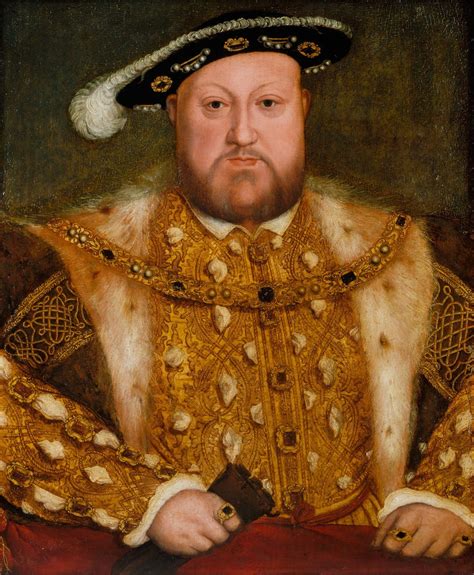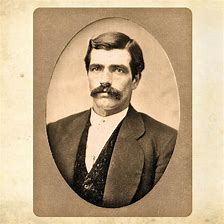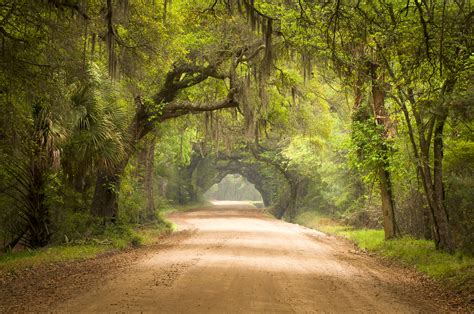Random thoughts from a largely-useless man. Old radio shows, old movies, the simple life.
Monday, April 30, 2018
Stagecoach
I watched the old movie Stagecoach this week, and I had forgotten what a well-done flick it was. It was, of course, the movie that made John Wayne's career. In the midst of an era of Saturday matinee B-grade westerns, it was a big-time show. Claire Trevor's performance as Dallas was classic, and Thomas Mitchell was Best Supporting Actor for his role as drunken Doc Boone. The tension during the race toward Lordsburg with Apaches in pursuit is great drama, and the final shoot-out with the Plummer boys is the appropriate finishing touch to a western. And, of course, there is romance of a different sort between Wayne and Trevor. Just a great movie.
Sunday, April 29, 2018
Economics even in the old days
Regular taxes could not meet the expenses; Somerset and Northumberland therefore carried to extremes the inflation of the currency started by Henry. Fortunately the possibilities of paper money were still unknown to the Western world. The worst they could do was to debase the currency to the lowest level in English history, ordering the mints to turn out shillings which were only one-quarter silver and three-quarters alloy. The great influx from the Spanish mines of Mexico and Peru was already beginning to lower the value of silver radically by increasing its supply, even without this deliberate inflation. The result was that prices jumped, and there was widespread distress.
(from A History of England and the British Empire)
(from A History of England and the British Empire)
Saturday, April 28, 2018
The ugly last days of Henry VIII
After Cromwell's execution Henry trusted no more in ministers but, in his own person - fat, coarse, diseased, and dangerous - headed a government more absolute than ever. Parliament had given away some of its own authority by permitting the king to make valid laws simply by proclamation, and it had given a dangerous extension to the scope of treason. It was unsafe to murmur even mild discontent against a ruler who did not hesitate to behead.
(from A History of England and the British Empire)

(from A History of England and the British Empire)
Thursday, April 26, 2018
She took her husband's name
Most old-time television fans are aware of the Ozzie and Harriet television program, and that the family was a real-life family. What they might not know is that Harriett Hilliard had put together a fairly good career in her own right well into the 1930s. However, with the beginning of their popular radio show in 1944, she became more familiarly known as Harriet Nelson. In Hollywood, it is a very rare thing for a wife who has an established film career to change her name to her husband's. I am not implying that in real life Harriet was as she was displayed in the show; the evidence is that she was somewhat more rough-cut than that. But at least she did take her husband's name.

Conquest by marriage
[Charles V's] vast heritage was the culmination of the marriage policy of the House of Hapsburg, whose diplomats were always on the lookout for eligible heiresses. A single marriage might determine the political destiny of a region for centuries, and it was by a constant succession of those marriages that the Hapsburg family built up its extensive but unnatural empire.
(from A History of England and the British Empire)
(from A History of England and the British Empire)
Wednesday, April 25, 2018
Exotic becomes commonplace
It is interesting how in each generation, young couples give names to their children that they perceive as being exotic and unusual. Then, as those names become popular, lots of people jump on the bandwagon and give those names to their children, and what was unusual becomes commonplace.
Tuesday, April 24, 2018
Loaded with bluebloods
Edward I, as we have seen, had helped to crystallize this practice of primogeniture and entail, whereby the family lands as well as the title went intact to the eldest son. The younger sons were commoners with no automatic social rank or privilege beyond what they might achieve for themselves, and were free to carry their inheritance of class - often their only heritage - into many diverse fields. It was through them in particular that the English social system came to possess more flexible features than the Continental. In France, and else where on the Continent, every son of a nobleman was a nobleman, also, rigidly limited by caste in the occupations which he might select. The class thus increased in geometric ratio, until in Poland, as an extreme case, it was estimated that there was a nobleman for every four acres of land.
(from A History of England and the British Empire)
(from A History of England and the British Empire)
Monday, April 23, 2018
Rapture of the deep
In the first season of the television show Sea Hunt, they introduced in multiple episodes the problem of a condition called "rapture of the deep," also known as nitrogen narcosis. Its noticeable effects are similar to drunkenness from alcohol or marijuana, and it particularly affects divers at deeper levels.


Sunday, April 22, 2018
How England avoided revolution
In France those sharp distinctions still continued; a man was a nobleman or he was not, and a vast gulf in prestige, privilege, and mode of life existed between social classes. The unprivileged paid most of the taxes and did all the work, but were not allowed to participate to any extent in the government. In England, on the other hand, the social frontiers were hazier, gradually blending all the way from dukes down to farm laborers. Those frontiers, too were easier to cross. There was, to be sure, a difference between "gentle" and "simple" folk; but class lines were not very sharply drawn. England was consequently more of a unit and was better able to escape the terrible revolt against the noble caste which was later to tear France apart.
(from A History of England and the British Empire)
(from A History of England and the British Empire)
Friday, April 20, 2018
Tate - just not a realistic premise
Tate was a television series that ran in 1960. The hero was a one-armed gunslinger who worked for hire (for the good guys, of course). He actually had his other arm, but had lost the use of it in the War of Yankee Aggression.
That a one-armed man could draw a gun is believable, but some of the other predicaments that he might get into on the frontier are not. Does it make much sense for him to go riding alone across the frontier, when the slightest accident could render him totally helpless? Things like putting on and buttoning his jeans became a major project with one hand. And the room for error in everyday matters would be so small in those days that the reality of a man being able to follow that line of work is practically nil.

That a one-armed man could draw a gun is believable, but some of the other predicaments that he might get into on the frontier are not. Does it make much sense for him to go riding alone across the frontier, when the slightest accident could render him totally helpless? Things like putting on and buttoning his jeans became a major project with one hand. And the room for error in everyday matters would be so small in those days that the reality of a man being able to follow that line of work is practically nil.
Thursday, April 19, 2018
The way to fight a war
The campaign of 1492 was glorified blackmail. Henry secured a very generous war grant from Parliament, and then, in the very week when Columbus reached America, crossed to France with some twenty-seven thousand men. He laid siege to Boulogne, not because he particularly wanted it, but because he knew that France was so busy in preparing to invade Italy that she would not want to be bothered with an English war. To the gratification of Henry and the disgust of his army, he was bought off before any serious bloodshed occurred. The royal treasury was consequently richer both by the expended balance of the Parliamentary grant and by the French bribe.
(from A History of England and the British Empire)
(from A History of England and the British Empire)
Wednesday, April 18, 2018
Watch out, tax collectors - the next guy may not like the IRS
The extortions caused bitter complaints. The name of [King Henry's] bishop-chancellor appeared in a tax-collecting device called "Morton's fork," by which, in the words of Francis Bacon, "the sparing were to be pressed for money because they saved, the lavish because they spent." The brunt of the odium fell upon Henry's two over-zealous and unscrupulous lawyers, Sir Richard Empson and Edmund Dudley, who continually dragged out the most flimsy pretexts to fine and confiscate in the king's interest. One of the first popular acts of Henry's son was to execute this hated pair.
(from A History of England and the British Empire)
(from A History of England and the British Empire)
Tuesday, April 17, 2018
Don't mess with the Hatfields
"I was in Kentucky once, a long time ago. The Hatfields have had three feuds. Somehow, there's always Hatfields left." (from A Man Called Trent, by Louis L'Amour)
I do not know about the claim of three feuds. Louis may have researched that, or it may be pure fiction. However, the Hatfields were downright mean, I know that. In this novel, however, they were on the side of the good guys.
I do not know about the claim of three feuds. Louis may have researched that, or it may be pure fiction. However, the Hatfields were downright mean, I know that. In this novel, however, they were on the side of the good guys.
Monday, April 16, 2018
Confidence was essential
Few of the real gunfighters doubted. To doubt would have been to fail. There was the famous case of the duel between Dave Tutt and Bill Hickock as an example. Hickock shot Tutt and turned to get the drop on Tutt's friends before the man shot had even hit the ground. Bill had known he was dead.
(from The Rider of Lost Creek, by Louis L'Amour)
(from The Rider of Lost Creek, by Louis L'Amour)
Thursday, April 12, 2018
It wasn't the gold
Spice stimulated the remarkable crop of early discoveries. Dreams of gold and glory may have played their part, but the great captains sailed primarily to secure cargoes of the pepper, ginger, cinnamon, and nutmegs which grew on rich islands just southeast of Asia. Europe demanded those spices in the days before refrigeration; for they were necessary to make meat palatable.
(from A History of England and the British Empire)
(from A History of England and the British Empire)
Wednesday, April 11, 2018
The doctor chose the heir?
The announcement that Lady Cholmondeley was expecting twins was revealed by Richard Kay of the Daily Mail[ and Mandrake of The Daily Telegraph. On 12 October 2009, the Marchioness gave birth to twin sons, Alexander Hugh George and Oliver Timothy George, who were originally expected in January. The birth took place shortly after Lady Cholmondeley was rushed to Queen Charlotte's Hospital in London, where she was monitored for two weeks. The elder son, Alexander, as heir apparent to the Marquessate, bears the courtesy title of Earl of Rocksavage; his brother is known as Lord Oliver Cholmondeley.
Assuming that the delivery was by caesarian section, then the difference between being known as The Marquess of Cholmondeley and merely Lord Oliver was a matter of minutes and purely at the discretion of the delivering doctor.
Tuesday, April 10, 2018
A strange quality of beauty
Some actresses are pretty, some are downright beautiful. Some, however, have a peculiar quality that I will term as "haunting," for lack of a better term. One such was France Nguyen. The interesting combination of names was due to the fact that her mother was French and her father Vietnamese.
A war? Ho, hum.
Throughout the long struggle [the War of the Roses] the bulk of the people were indifferent to its course. Not a single town was sufficiently interested in either side to withstand a siege, but to avoid trouble opened its gates to whatever force came along, as the easiest way.
(from A History of England and the British Empire]
(from A History of England and the British Empire]
Monday, April 09, 2018
Gory war
In most battles [in the War of the Roses] the heaviest casualties were suffered by the armored noblemen and mounted knights; for the footmen of the defeated army generally escaped slaughter by running away. Each side was inclined o follow victory with the execution of prominent prisoners. London Bridge was decorated with the severed heads of Lancastrian and Yorkist leaders in turn.
(from A History of England and the British Empire)
(from A History of England and the British Empire)
Sunday, April 08, 2018
Tom Smith
Thomas "Bear River" Smith served as a lawman in New York City, Bear River, WY, and Kit Carson, CO, before becoming marshall of the rough and tumble cowboys of Abilene, KS in June 1870. He was mentioned by Louis L'Amour in his story "The Rider of Lost Creek."

Saturday, April 07, 2018
Supply and demand in the Middle Ages
So many serfs or villeins had died of the Black Death that crops lay ungathered, and fully a third of the arable land was left totally uncultivated. Naturally, the remaining workers appreciated the fact that their services were worth more than hitherto. They became more vocally discontented with the demands of the manorial system, and some refused to work at all on the old harsh terms. The owners of the manors, faced with danger of having vast fields lie untilled, and of the consequent loss of income, began gradually to alter the old manorial terms.
(from A History of England and the British Empire)
(from A History of England and the British Empire)
Friday, April 06, 2018
A neglected name
In this age of trendy names, one wonders why Heliotrope has been so neglected. After all, it is a beautiful color, so why not a beautiful name? Samantha Heliotrope Anderson, or something.

Jack Webb, a monument to bad acting
I might think Webb's terrible acting on Dragnet was on purpose, to try to make the role as everyday as possible, if it were not for his performances on radio shows. They were the same. He may have been an excellent producer and director, but he was not much at acting.

Thursday, April 05, 2018
What the Black Death left behind
"After the pestilence," writes another chronicler, "many buildings both great and small in all cities, towns, and boroughs fell into ruins for want of inhabitants, and in the same way many villages and hamlets were depopulated, and there were no houses left in them, all who had lived therein being dead; and it seemed likely that many such hamlets would never again be inhabited. In the following winter there was such a dearth of servants for all sorts of labor as it was believed had never been before. For the sheep and cattle strayed in all directions without herdsmen, and all things were left with none to care for them."
(from A History of England and the British Empire)
(from A History of England and the British Empire)
Wednesday, April 04, 2018
How bad was the Black Death?
When [King] Edward took his army across the Channel for the Crecy campaign in 1346, he left about four million subjects in England. Three years later scarcely two and a half million were left; the Black Death had done for the rest.
(from A History of England and the British Empire)

(from A History of England and the British Empire)
Tuesday, April 03, 2018
Nostalgia for country roads?
"Take me home, country roads," John Denver sang. It was a huge hit. And I must admit that I have a ton of pleasant memories associated with what is now Brewer Road on the northeast edge of Booneville, and others like it. We would go barefoot all summer, and it was a sign of your manhood that you could run on a dirt road barefooted. Sometimes when it was really hot, the dirt would become a skillet, and you could stand on it, so you would have to dash to the shade of a large tree.
On the other hand, dirt roads were dusty. Everything at a house along a dirt road was covered with a film of grit, and the houses were impossible to keep clean. Back in those days many cars did not have air conditioning, including ours, and so when we drove in the summer we had to have the windows down. If you passed another car, or if you followed a car at all closely, you had to eat dirt. So, the memories are definitely mixed in nature.

On the other hand, dirt roads were dusty. Everything at a house along a dirt road was covered with a film of grit, and the houses were impossible to keep clean. Back in those days many cars did not have air conditioning, including ours, and so when we drove in the summer we had to have the windows down. If you passed another car, or if you followed a car at all closely, you had to eat dirt. So, the memories are definitely mixed in nature.
Monday, April 02, 2018
Nice guy, but only to rich folks
This chivalry of the Black Prince and his fellows was reserved, like that of Richard the Lion-Hearted, entirely for the well-born. For the common people the prince showed a callous cruelty. For instance, upon hearing of the death of Sir John Chandos, his right-hand man, he assuaged his grief by storming Limoges and having two thousand men, women and children put to the sword without mercy. There was no Froissart to write the grim story of such forgotten men and women, who suffered murder, pillage and torture.
(from A History of England and the British Empire)
Sunday, April 01, 2018
Longbows
This longbow, the crossbow's rival, was of the primitive standard bow design, made of yew wood, about five feet high, and shot arrows a yard long. The English had been developing this for a long time as a distinctive weapon. Every village green had its archery practice, and by [the year] 1300 the sturdy yeomen were achieving remarkable speed nd accuracy with this new weapon. The longbow in skillful hands could be deadly at two hundred yards, could send off approximately six aimed shots a minute, and could shoot through a full inch of wood or a horseman's armor.
(from A History of England and the British Empire)
(from A History of England and the British Empire)
Subscribe to:
Comments (Atom)